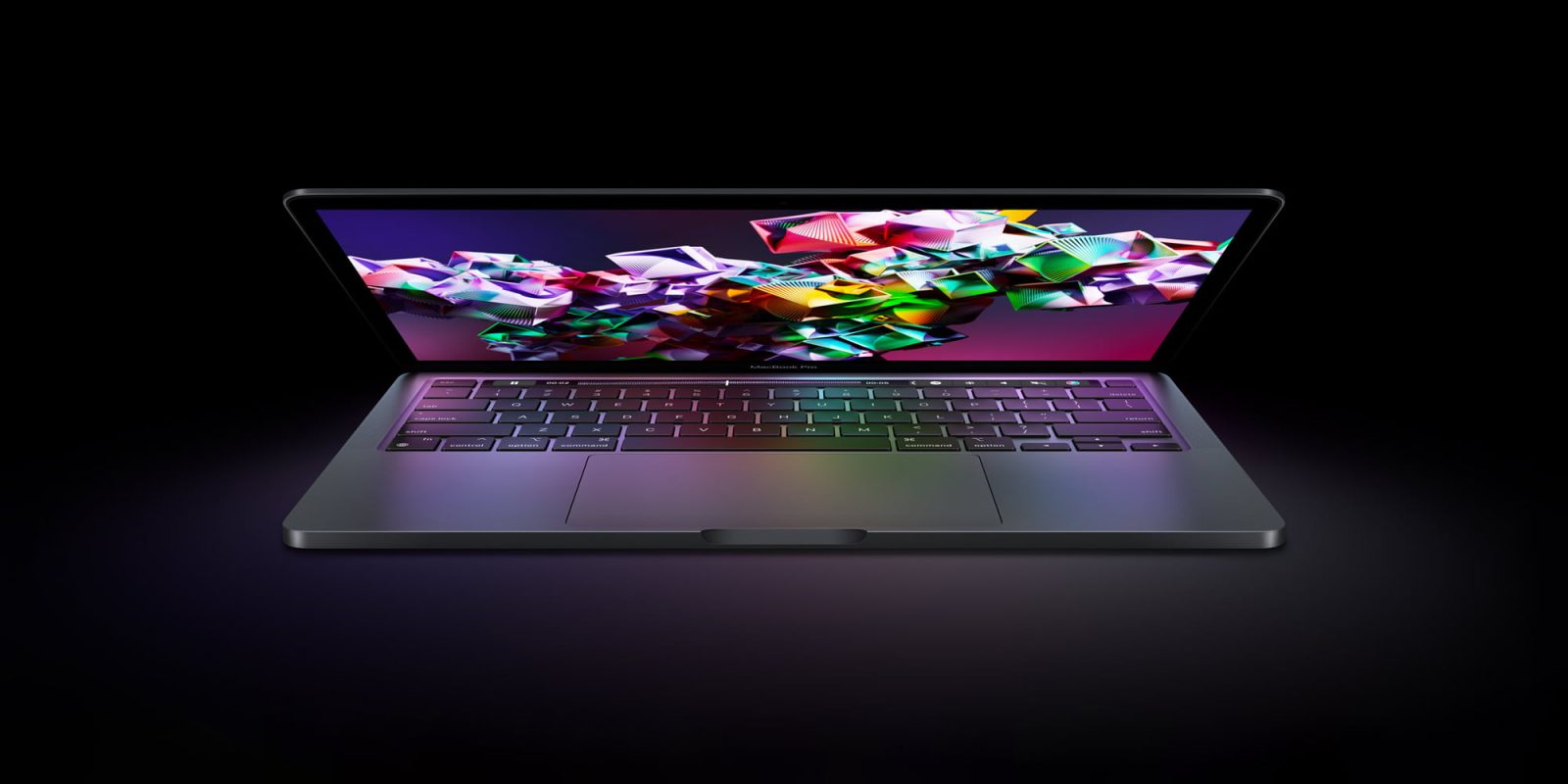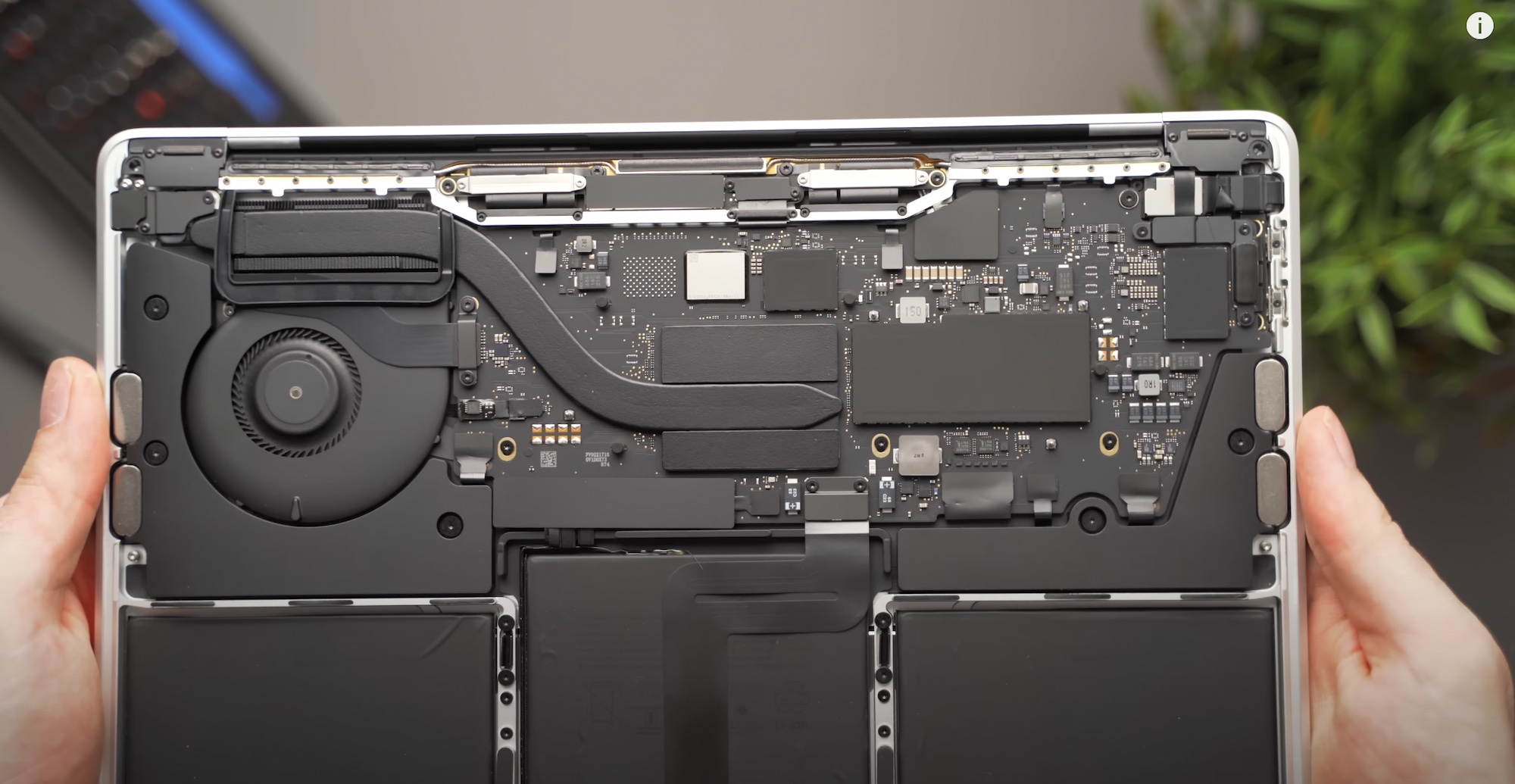
The new 13-inch MacBook Pro, which features Apple’s M2 chip, has finally arrived in stores and also in the hands of customers. While M2 brings performance improvements compared to M1, it seems that this is not the case when it comes to storage speed. Tests done with the new M2 MacBook Pro reveal that its entry-level model has a slower SSD than the M1 model.
As noted by YouTube channels like Max Tech and Created Tech (via MacRumors), the base model of the new M2 MacBook Pro, which has 256GB of storage, delivers slower SSD speeds compared to the previous generation 13-inch MacBook Pro with M1.
The tests were run with Blackmagic Disk Speed Test, which is a benchmark app that lets users test the performance and measure the transfer speed of any internal or external storage on a Mac. Surprisingly, instead of providing better results than its predecessor, the 256GB M2 MacBook Pro got worse in terms of storage speed.
Benchmarks reveal that the SSD inside the entry-level MacBook Pro M2 model is 34% slower than the M1 model for write speed, while the difference in read speed is up to 50%.
Here are the results of one of the benchmark tests done by YouTube channel Max Tech:
- M1 MacBook Pro: 2900 MB/s (read speed) and 2215 MB/s (write speed)
- M2 MacBook Pro: 1446 MB/s (read speed) and 1463 MB/s (write speed)
However, the lower SSD performance doesn’t seem to affect the more expensive M2 MacBook Pro models with more internal storage. YouTuber Aaron Zollo of Zollotech shows that the 512GB M2 MacBook Pro has very similar SSD speeds to the M1 model.
What’s going on with the 256GB M2 MacBook Pro?
Created Tech removed the bottom case of the new M2 MacBook Pro with 256GB of storage to take a look at its internal components. It turns out that Apple has indeed changed something when it comes to the SSD.
The M1 MacBook Pro has two NAND chips of 128GB each in its 256GB version. When a device has multiple NAND chips combined, it can achieve faster speeds in parallel. However, the M2 MacBook Pro has a single 256GB NAND chip, so this is why it fails to reach the same SSD speeds as the previous generation 13-inch MacBook Pro.

It’s unclear why Apple changed the SSD in the entry-level M2 MacBook Pro model – one possible reason is that the company is trying to reduce costs by using a single NAND chip instead of two. Unfortunately, M1 MacBook Pro users who are considering upgrading to the M2 model with 256GB of storage will end up losing SSD performance despite the CPU and GPU improvements.
The downgrade also raises concerns about Apple doing the same with the entry-level M2 MacBook Air, which won’t be available in stores until next month.
Having a slower SSD increases the time it takes to load apps and transfer files. Of course, the SSD in the entry-level M2 MacBook Pro is still quite fast, but cutting the speed by 50% compared to the previous model seems unfair to consumers, especially in a “Pro” machine.
Prices for the M2 MacBook Pro start at $1299, but you can look for special offers on Amazon.
FTC: We use income earning auto affiliate links. More.



Comments